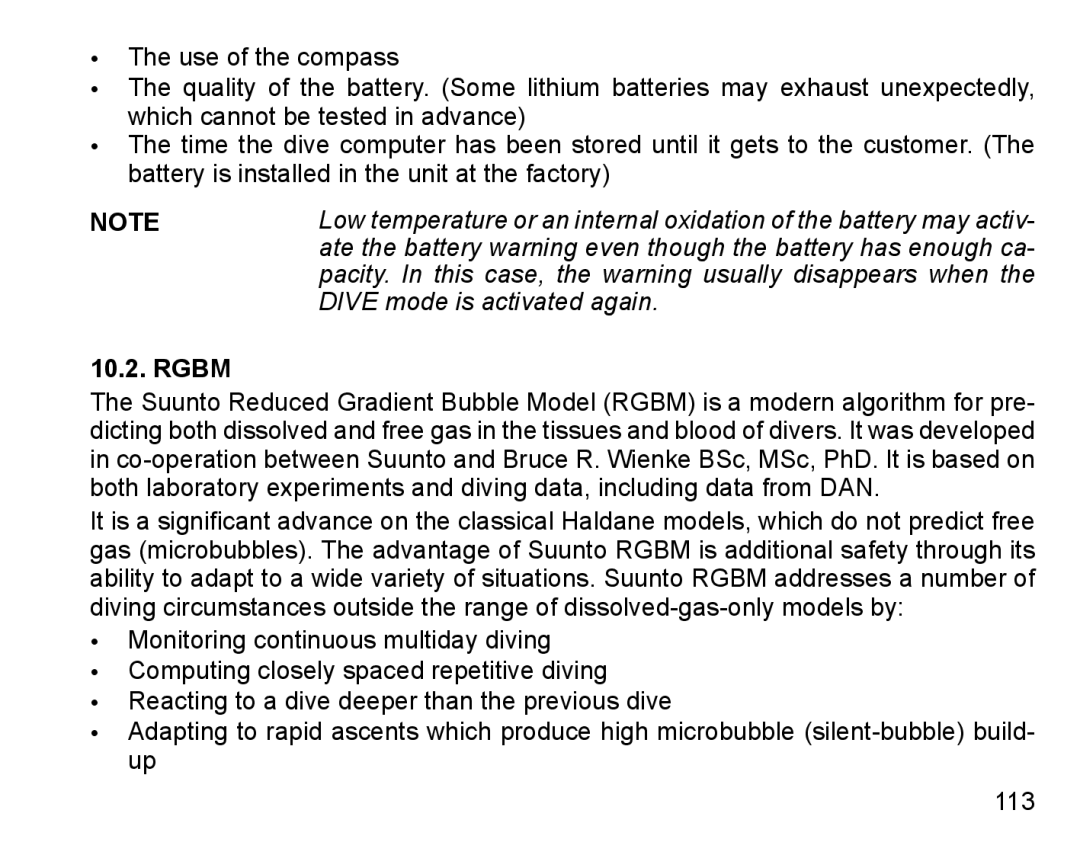•The use of the compass
•The quality of the battery. (Some lithium batteries may exhaust unexpectedly, which cannot be tested in advance)
•The time the dive computer has been stored until it gets to the customer. (The battery is installed in the unit at the factory)
NOTE
10.2. RGBM
Low temperature or an internal oxidation of the battery may activ- ate the battery warning even though the battery has enough ca- pacity. In this case, the warning usually disappears when the DIVE mode is activated again.
The Suunto Reduced Gradient Bubble Model (RGBM) is a modern algorithm for pre- dicting both dissolved and free gas in the tissues and blood of divers. It was developed in
It is a significant advance on the classical Haldane models, which do not predict free gas (microbubbles). The advantage of Suunto RGBM is additional safety through its ability to adapt to a wide variety of situations. Suunto RGBM addresses a number of diving circumstances outside the range of
•Monitoring continuous multiday diving
•Computing closely spaced repetitive diving
•Reacting to a dive deeper than the previous dive
•Adapting to rapid ascents which produce high microbubble
113
